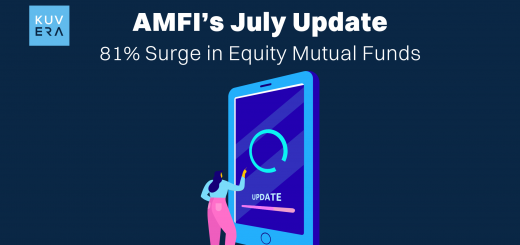What are debt mutual funds?
Debt mutual funds are a type of investment vehicle that invests in fixed-income securities, such as bonds and other debt instruments. These funds aim to generate income for investors by investing in a diversified portfolio of debt securities, which typically pay regular interest payments to the fund. This allows investors to earn regular income from their investments in the form of dividends. Debt mutual funds can be a good option for investors who are looking for a relatively low-risk way to invest their money and earn a regular income.
What are the types of debt mutual funds?
There are several different types of debt mutual funds, which are differentiated based on the types of securities they invest in and the specific investment objectives they aim to achieve. Some common types of debt mutual funds include:
Short-term debt funds: These funds invest in debt securities with relatively short maturities, such as Treasury bills and commercial paper. They are designed to provide a stable source of income and preserve capital, making them a good option for investors who are risk-averse or looking for a place to park their money temporarily.
Intermediate-term debt funds: These funds invest in debt securities with maturities of 3 to 10 years. They offer a higher level of income than short-term debt funds, but also carry a higher level of interest rate risk.
Long-term debt funds: These funds invest in debt securities with maturities of 10 years or more. They offer the potential for higher levels of income, but also carry the most interest rate risk of any type of debt fund.
Corporate bond funds: These funds invest in the debt securities of corporations, such as corporate bonds and debentures. They offer the potential for higher levels of income than government bond funds, but also carry higher credit risk.
Government bond funds: These funds invest in the debt securities of governments, such as Treasury bonds and other government-issued bonds. They offer a relatively low level of risk, but also a lower level of income compared to other types of debt funds.
Click here to watch our debt mutual fund series on YouTube to understand the types of debt mutual funds better.
How does debt mutual funds work?
Debt mutual funds work by pooling the money of many investors and using it to purchase a diversified portfolio of debt securities, such as bonds and other fixed-income assets. The fund’s manager is responsible for selecting the specific securities to be included in the portfolio, based on factors such as the creditworthiness of the issuer and the maturity of the security. The fund earns income from the regular interest payments made on the securities it holds, which is distributed to investors in the form of dividends.
When an investor buys shares in a debt mutual fund, they become a part-owner of the fund and are entitled to a share of the income it generates. The value of the investor’s shares will fluctuate based on the performance of the securities in the fund’s portfolio, as well as other factors such as changes in interest rates.
One of the main advantages of investing in a debt mutual fund is that it allows investors to gain exposure to a diversified portfolio of fixed-income securities, which can help to reduce the overall level of risk. This can be especially beneficial for individual investors who may not have the time or expertise to manage their own portfolios of debt securities.
Another advantage of debt mutual funds is that they offer investors the opportunity to earn a regular income from their investments. This can be particularly appealing for investors who are retired or otherwise looking for a source of income from their investments.
Benefits of debt mutual funds
There are several potential benefits to investing in debt mutual funds, including:
Diversification: Debt mutual funds allow investors to gain exposure to a diversified portfolio of fixed-income securities, which can help to reduce the overall level of risk. This can be especially beneficial for individual investors who may not have the time or expertise to manage their own portfolios of debt securities.
Professional management: Debt mutual funds are managed by professional fund managers who have expertise in selecting fixed-income securities and managing a portfolio. This can help to ensure that the fund’s assets are invested in a way that is likely to generate the best possible returns for investors.
Regular income: Debt mutual funds typically pay regular dividends to investors, providing a source of income from their investments. This can be particularly appealing for investors who are retired or otherwise looking for a regular income from their investments.
Liquidity: Debt mutual funds are highly liquid, which means that investors can buy and sell shares in the fund easily and quickly. This can be useful for investors who need to access their money in a hurry or who want to be able to adjust their investments in response to changes in market conditions.
Potential for capital appreciation: While the primary goal of debt mutual funds is to generate income for investors, they can also provide the potential for capital appreciation. This means that the value of the securities in the fund’s portfolio can increase over time, potentially leading to an increase in the value of the investor’s shares.
Difference between FD and mutual funds
Fixed deposits (FDs) and debt mutual funds are both types of investment vehicles that offer investors the opportunity to earn a regular income from their savings. However, there are some key differences between the two, including:
Risk: FDs are typically considered to be a very low-risk investment option, as they are backed by the issuing bank or financial institution. In contrast, debt mutual funds carry a certain level of interest rate and credit risk, depending on the specific securities they invest in. This means that the value of the fund’s holdings can fluctuate, and there is a possibility that the investor could lose money.
Returns: FDs offer a fixed rate of interest that is determined at the time the deposit is made. This means that the investor knows exactly how much they will earn from their investment, and the returns are not subject to market fluctuations. In contrast, the returns on debt mutual funds are not fixed and will vary depending on the performance of the securities in the fund’s portfolio.
Flexibility: FDs are generally less flexible than debt mutual funds, as they typically require the investor to commit their money for a fixed period of time. In contrast, debt mutual funds allow investors to buy and sell shares in the fund easily and quickly, which can be useful for investors who need to access their money in a hurry or who want to be able to adjust their investments in response to changes in market conditions.
Taxation: The interest earned on FDs is subject to tax, depending on the investor’s individual tax situation. In contrast, the returns on debt mutual funds are taxed differently, depending on the type of fund and the holding period of the investment.
Overall, FDs and debt mutual funds are both viable options for investors who are looking to earn a regular income from their savings. The right choice will depend on the individual investor’s risk tolerance, investment objectives, and other factors.
Difference between debt mutual funds and equity mutual funds
Debt mutual funds and equity mutual funds are both types of investment vehicles that allow investors to pool their money together and invest in a diversified portfolio of securities. However, there are some key differences between the two, including:
Type of securities: Debt mutual funds invest in fixed-income securities, such as bonds and other debt instruments. These securities typically pay regular interest payments to the fund, which is distributed to investors in the form of dividends. In contrast, equity mutual funds invest in stocks and other equity securities, which do not pay regular dividends but offer the potential for capital appreciation.
Risk and return: They are generally considered to be less risky than equity mutual funds, as the value of the securities they invest in is typically more stable. However, this also means that the potential returns from debt mutual funds are generally lower than those from equity mutual funds. In contrast, equity mutual funds offer the potential for higher returns, but also carry a higher level of risk.
Taxation: The returns on debt mutual funds are taxed differently than those on equity mutual funds, depending on the type of fund and the holding period of the investment. In general, the dividends paid by debt mutual funds are taxed at a lower rate than the capital gains earned from equity mutual funds.
Investment objectives: They are typically used by investors who are looking to generate a regular income from their investments, or to preserve their capital. In contrast, equity mutual funds are often used by investors who are looking to grow their wealth over the long term, and are willing to accept a higher level of risk in order to do so.
Overall, the choice between a debt mf and an equity mf will depend on the individual investor’s risk tolerance, investment objectives, and other factors.
Start investing through a platform that brings goal planning and investing to your fingertips. Visit Kuvera.in to discover Direct Plans and Fixed Deposits and start investing today.
#MutualFundSahiHai #KuveraSabs
——————-
Interested in how we think about the markets?
Read more: Zen And The Art Of Investing
Watch here: Kuvera Insights: All about Quant Funds with experts
Start investing through a platform that brings goal planning and investing to your fingertips. Visit kuvera.in to discover Direct Plans and Fixed Deposits and start investing today. #MutualFundSahiHai #KuveraSabseSahiHai











